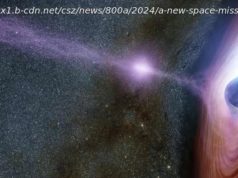Long before Jacques Dubochet embarked on the research that earned him a Nobel Chemistry Prize on Wednesday, he made a discovery at age five that helped him overcome a common, yet powerful fear.
The retired professor of biophysics and the University of Lausanne has been honoured, with two others, for developing a simpler and better method for imaging tiny, frozen molecules.
But, according to his CV posted on the university website, his first notable achievement happened in 1946 when he became « no longer afraid of the dark ».
« Because the sun comes back; it was Copernicus who explained this, » his CV says.
That breakthrough came five years after he was « conceived by optimistic parents » in 1941, the CV adds.
It also noted that his « experimental scientific career » began before the age of 10, using instruments that included « knives, needles, strings, matches ».
The visibly elated 75-year-old Dubochet told journalists in Lausanne that teamwork was key to his scientific successes, hours after winning the award with Joachim Frank and Richard Henderson.
« In our group it was a necessary requirement that one has to be able to collaborate, » said Dubochet, who described himself as dyslexic.
« I hate personal competition and so each time in my career I came in a field where it was highly competitive I gave up ».
The Nobel Chemistry Committee honoured the group for cryo-electron microscopy, explaining that it allowed researchers to now « routinely produce three-dimensional structures of biomolecules ».
Dubochet’s key contribution was discovering in the 1980s how to cool water so quickly that it solidifies in liquid form around a biological sample, allowing the molecules to retain their natural shape even in a vacuum.
He told reporters that despite his lofty achievements he was never very good in school and that a main part of his career has been exploring the work of others.
« Rather big part of my time is to read scientific journals and to discover what others are doing, » he said.
« Reading science seriously… there are so many possibilities ».
Explore further: The Latest: Nobel winner ‘like Google Earth for molecules’






